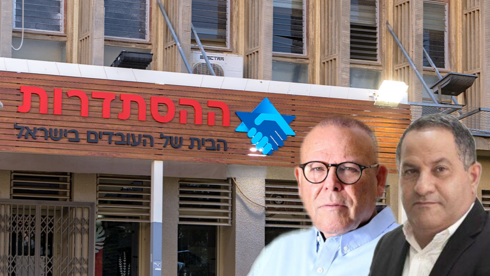Copyright ynetnews

The sweeping police investigation into alleged corruption at the Histadrut labor federation continued to expand Tuesday, with senior officials expected to be summoned for questioning and sources confirming that Likud ministers may also be called to testify. The Lahav 433 National Fraud Investigations Unit has described the case as one of the largest public corruption probes in Israel’s history. Police suspect a wide-ranging network of bribery and fraud linking senior labor officials, businesspeople and local government figures. On Monday, the Rishon Lezion Magistrate’s Court extended the detention of Histadrut Chairman Arnon Bar-David by eight days. Police had requested a 10-day extension, citing evidence of large-scale bribery and breach of trust. “This case involves unusually large sums and abuse of entrusted power,” said Superintendent Ronen Gingold, who is leading the investigation. Police believe Bar-David used his position to promote associates and influence appointments through his longtime relationship with Ezra Gabay, a Likud activist and insurance agent. Investigators say Gabay operated a bribery and favors network worth millions of shekels, trading influence and appointments for financial gain. His son, Asaf Gabay, a senior executive in the family firm, is suspected of managing parts of the operation and remains in custody. Both men’s detentions were extended by eight days. The probe, under covert investigation for nearly two years, became public Monday after 55 coordinated police raids and the arrest of eight suspects. Another 27 individuals were questioned that day, with more expected in the coming week. The court also extended the detention of Hila Kanister Bar-David, the Histadrut chief’s wife and former CEO of the Shahar On nonprofit, for seven days. She is suspected of bribery, fraud, breach of trust and mediating bribes. Her attorney, Micha Fettman, argued she was arrested only “to pressure her husband,” saying she resigned from her position last year and “has nothing to hide.” Fettman said Bar-David has cooperated fully with investigators, turning over his phones and passcodes. “He’s been close friends with Gabay for 30 years. There’s no money, no favors—just a personal friendship,” he told the court. During Monday’s proceedings, a defense attorney said Culture and Sports Minister Miki Zohar was mentioned in police materials, though investigators have not confirmed he will be questioned. Zohar’s former ministry director general, Kiryat Gat Mayor Kfir Suissa, was among those questioned earlier in the week and has denied wrongdoing. Suissa’s office said in a statement that the mayor “answered all questions as part of a broad investigation involving many officials” and that “his public service record is clean.” Judge Dorit Saban Noy ruled to keep Bar-David in custody, writing that there is “reasonable suspicion the suspect was part of a network exchanging bribes and benefits” and that releasing him “could lead to obstruction or tampering with evidence.” Police say the investigation spans 13 sub-cases and involves hundreds of witnesses. “The scope of corruption crosses the entire country,” a police source said, adding that 141 investigative actions remain pending. The affair has sent tremors through Israel’s largest labor organization, which represents hundreds of thousands of workers and maintains deep political ties. Analysts say the outcome could reshape the Histadrut’s leadership and its long-standing influence within Israel’s political system. “The goal,” one police official said, “is to expose how power and money intertwined in institutions that were meant to protect workers — not exploit them.”



